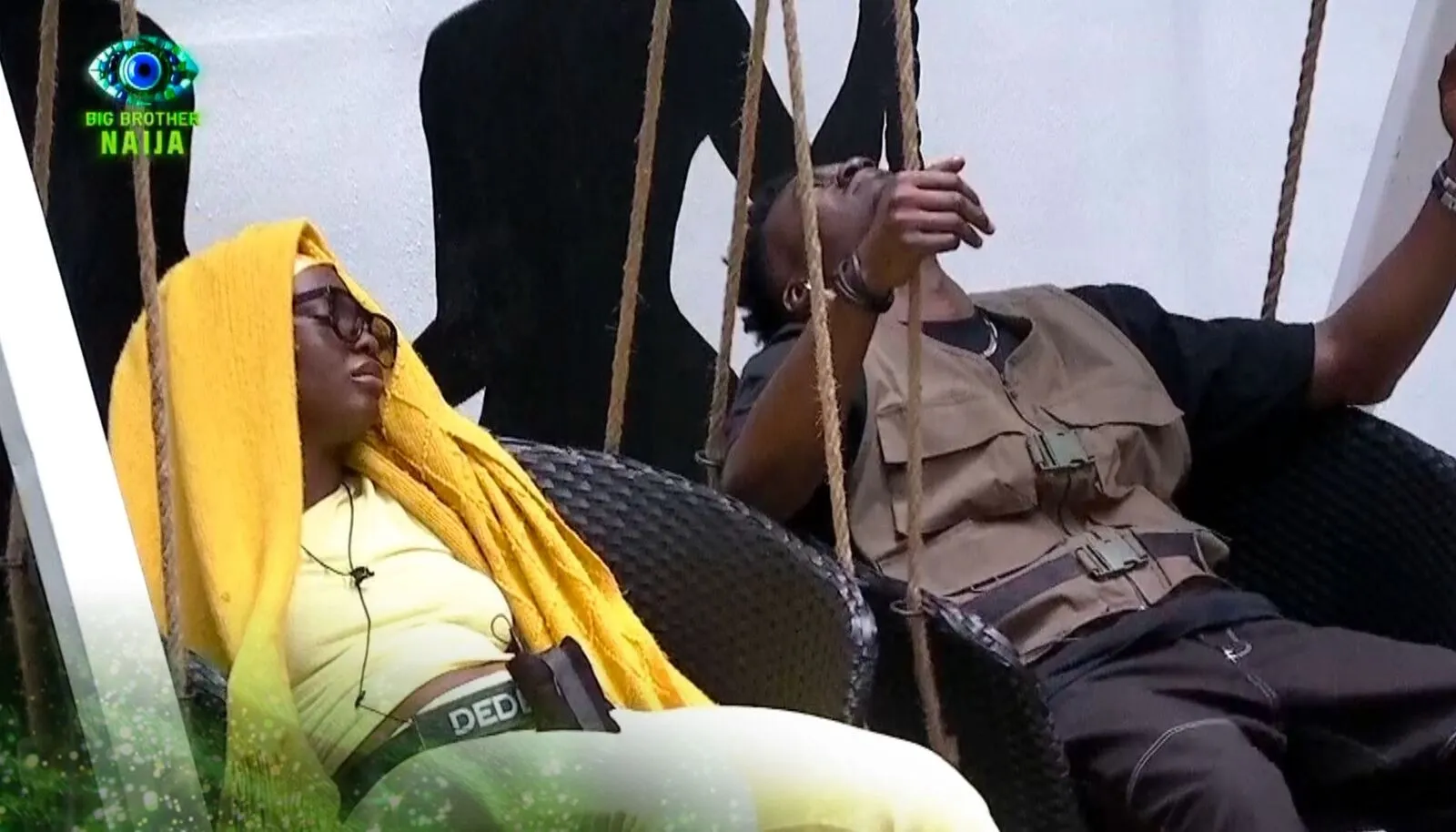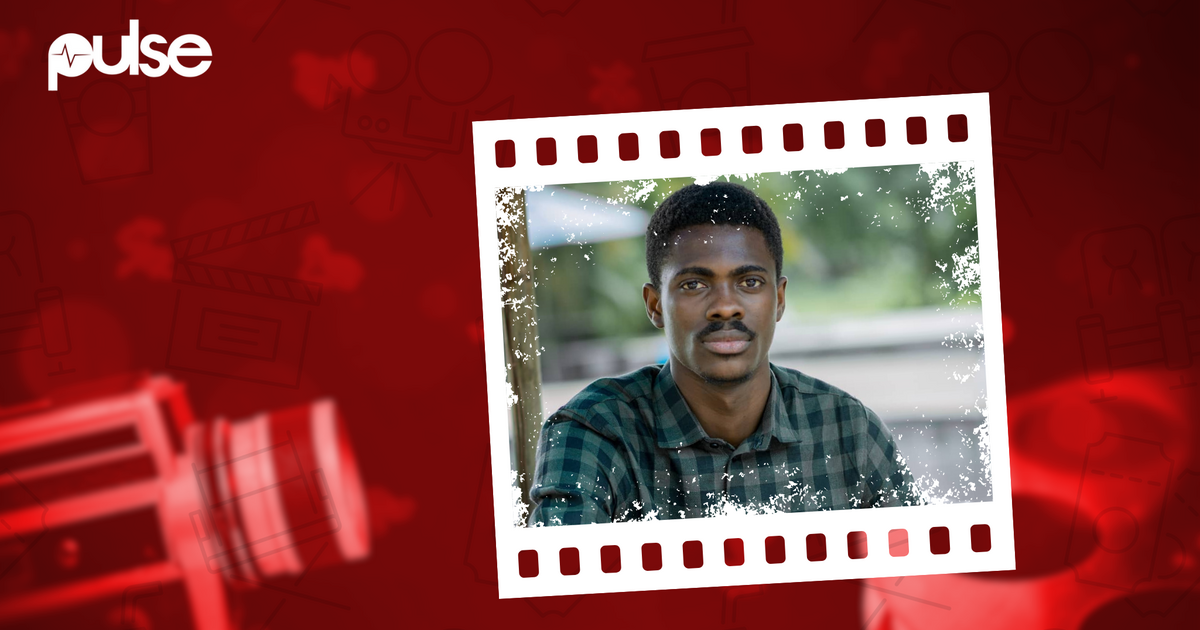But they needed an editor, someone experienced to bring the clips together and turn them into a film.
When he did his job, mostly coverage of weddings, he started making trailers of the weddings that the couples sometimes loved so much they forgot to collect the actual footage of their weddings. So his friends suggested that he take up the mantle in the group and start attempting to edit their films.
He didn’t think it was something he could do. “I was like this is something big, I just do short trailers,” he told Pulse Nigeria. Today, he has become one of the most sought-after editors in Nollywood, with a portfolio that includes Gangs of Lagos and Brotherhood.
This interview has been edited for clarity and length.
Who is an editor in Nollywood?
An editor is a storyteller who manipulates images to bring a story to life. He does a lot of refining. Think of it as sculpting. You know when DaVinci said the image was already in the stone and he was just chipping it out to bring the sculpture? Editing is like taking out all the fat. The role of an editor is to tell a story from the footage they have in front of them.
When is the editor introduced to the project?
Ideally, the editor should be introduced as early as the script is ready before we go on set. When you do this, the editor can give notes because we read the script like we’re watching it. Also, I can have conversations about the camera they’ll use, other film references and the music.
When editing l use something called temporary music to guide my cutting because I have to retain the pace of the film. The earlier I come on board, the better I do this. But many times that’s not the case. The editor comes after the shoot.
Who’s the editor working with directly on the project?
The editor is in communication with the director and producer mostly. The director directs even the editor. I typically start editing the moment you get on set. In some cases, I’m working with an assistant. The assistant will be on set collecting the footage and creating proxies which are lower resolutions of the original footage. We use them because the originals are very heavy and cutting with them might slow down your workflow.
How do you cut?
A film is a combination of scenes but every scene must have a beginning, middle and end. A good film is a combination of good scenes so I edit scene by scene before bringing it into a full timeline.
While editing, I pay attention to pace, rhythm and transition. After this refining, then we can say the first cut is ready.
How long does the editing take?
Getting to the first cut can take up to six or seven weeks.
The time between the first cut and the picture lock, when the film is ready, is dependent on how much back and forth I do with the producer. Moving from the first cut to the picture lock can sometimes take three to four months.
It also depends on the genre because action films take longer to edit than say drama. You cut an action film differently from a romantic comedy. When the picture lock is ready you dispose of all the cuts. Legally you’re not supposed to have a copy of the film after editing is done. This also protects you because if the film leaks online you know you’re safe.
How does one find a job as an editor in Nollywood?
There is no template but how it works for me and others I know is we built our CV through volunteering, getting on set and working for free.
How will you grade a good editor?
I will grade a good editor based on how much attention is paid to the story. Sometimes you’ve edited a film at a fast pace, while also cutting another at a slower pace. Sometimes you might still be in the mood of the other one and you have to be mindful of that. A good editor interprets the director’s vision. You have to be a good storyteller.
How does one get better at editing?
It comes from reading books, watching good films and a lot of video essays. Editing is difficult to teach because a lot of it is intuitive. It just feels right. To be a judge of what feels right you must have invested so much in your mind. You need to do a lot of equipping your mind.
You learn editing the most by editing, and making mistakes. Editing is a lot like writing, sometimes we call it the final rewrite.
How much do editors get paid in Nollywood?
Nollywood is divided into so many sub-industries and that determines how much people get paid. There’s the YouTube web series, Africa Magic, Iroko, cinema, streaming, Netflix original etc. You’ll not expect to make the same from a YouTube web series and a Prime Video original.
I personally had been editing for four years before I could say I started making money and it was very little. Sometimes I will do a short film for ₦30,000, or even ₦15,000.
A new editor should not expect to earn what someone who’s been in the industry for 10 years and has demonstrated experience in those years earns. A good way to decide how much you want to accept for a job is by treating it like a full-time job. Take into consideration the time you will spend doing the work.
How do you decide on the jobs you accept?
You do a job for two reasons, money and CV. When you’re coming up sometimes you do almost every job, but if it doesn’t satisfy you with any of those, you might have to reject it.
How many editors work on a Nollywood project?
On some projects, you have more than one editor. On Gangs of Lagos, we were three editors. I sometimes have assistant editors who help me with things like naming the clips. Sometimes they help with syncing and sorting the footage.
What are some of the challenges editors in Nollywood face?
The challenges we face affect everybody who works in the creative space in Nigeria generally. There is so much low education on what an editor brings to the table. A lot of people still think that editing is something anybody can just do.
A lot of people might know how to join clips together but for a film, they lack the technical know-how. Editing random videos and editing for film are very different.
What tools do you need to become an editor?
You don’t need three monitors to become an editor. Your laptop and mouse are good enough for you. I have three monitors to make my work faster. I use one for my bin, where I pick my footage from. I use one for my timeline, where I do my cutting. The last one I use to preview what I have cut. You can achieve this with one screen as well.
You also need software tools like Adobe Premiere Pro, Final Cut Pro. I use DaVinci Resolve now. Just choose a software that is more accessible to you.
What advice do you have for people who want to become editors in Nollywood?
Edit all the time. Watch all the top films that win editing awards. Read books and have sense. Be a diligent person. Be honest, reliable and trustworthy. This is a referral-based job.






